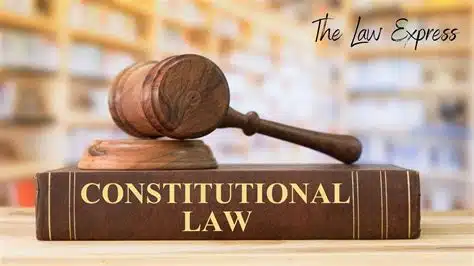The Role of a Constitutional Lawyer
Constitutional lawyers play a crucial role in the legal system, as they specialize in the interpretation and application of constitutional law. Their main responsibility is to protect and uphold the rights and liberties of individuals within a country. These lawyers are experts in analyzing and understanding the constitution, and they use their knowledge and skills to provide legal guidance and representation to clients involved in constitutional matters.
One of the key roles of a constitutional lawyer is to ensure that laws and regulations are in compliance with the constitution. They review proposed legislation, executive actions, and administrative regulations to identify any potential constitutional issues. If they find that a law or action is not in line with the constitution, they can challenge it in court on behalf of their clients.
Additionally, constitutional lawyers may also be involved in drafting and amending constitutions. They work closely with lawmakers and government officials to shape the language and provisions of a constitution to ensure that it adequately protects the rights and interests of the people. This can include addressing issues such as the separation of powers, fundamental rights, and the structure and functions of government.
In conclusion, the role of a constitutional lawyer is of utmost importance in safeguarding the principles and values enshrined in a constitution. They serve as guardians of the constitution and work diligently to ensure that laws and government actions align with its provisions. The expertise and skills of constitutional lawyers contribute significantly to the continued development and protection of constitutional rights and freedoms.
Education and Training for Constitutional Lawyers
Education and training are vital aspects of becoming a successful constitutional lawyer. Constitutional law deals with the interpretation and application of the fundamental principles outlined in a country’s constitution. Aspiring constitutional lawyers must acquire a solid educational foundation and undergo specialized training to navigate the complexities of this field.
Firstly, obtaining a bachelor’s degree in law or a related field is the initial step towards a career in constitutional law. This undergraduate education provides a broad understanding of legal principles, ethics, and constitutional frameworks. Students gain knowledge in areas such as constitutional history, political science, and legal research and writing.
After completing a bachelor’s degree, aspiring constitutional lawyers must attend law school, where they can pursue a Juris Doctor (J.D.) degree. Law school provides in-depth legal training and allows students to specialize in constitutional law through elective courses and internships. During their time in law school, students gain a comprehensive understanding of constitutional principles, landmark cases, and legal analysis.
Furthermore, practical experience is essential for aspiring constitutional lawyers. Students are encouraged to participate in moot court competitions, legal clinics, and internships focused on constitutional law. These opportunities provide hands-on experience in researching legal precedents, drafting legal documents, and arguing cases before mock courts. Engaging in real-world experiences helps students develop the necessary skills and confidence to excel in their future careers.
- Research Skills: Constitutional lawyers must possess strong research abilities to analyze complex legal issues and understand past cases and precedents. Effective research skills enable them to craft persuasive arguments and present well-founded legal opinions.
- Analytical Thinking: The ability to think critically and analyze legal problems is crucial in constitutional law. Lawyers must evaluate vast amounts of information, identify key issues, and apply constitutional principles to reach a sound legal conclusion.
- Strong Communication: Constitutional lawyers need excellent oral and written communication skills to articulate complex legal concepts to clients, colleagues, and judges. Effective communication ensures that arguments are presented convincingly and comprehensibly.
| Education and Training for Constitutional Lawyers |
|---|
| 1. Obtain a bachelor’s degree in law or a related field |
| 2. Attend law school and pursue a Juris Doctor (J.D.) degree |
| 3. Participate in moot court competitions, legal clinics, and internships |
In conclusion, education and training play a critical role in preparing individuals for a successful career as a constitutional lawyer. The combination of a solid educational foundation, specialized training, and practical experience equips aspiring lawyers with the necessary skills and knowledge to navigate the intricacies of constitutional law. By developing strong research abilities, analytical thinking, and effective communication skills, constitutional lawyers can engage in the interpretation and application of constitutional principles with expertise and confidence.
Skills and Qualities of Successful Constitutional Lawyers
When it comes to the field of constitutional law, there are certain skills and qualities that can greatly contribute to the success of a lawyer. These skills not only enable them to navigate the complexities of constitutional issues but also help them to effectively advocate for their clients. Whether you aspire to become a constitutional lawyer or simply want to understand the traits that make them successful, this blog post will shed light on the crucial skills and qualities possessed by these legal professionals.
1. Analytical Skills: One of the most essential skills for a constitutional lawyer is strong analytical thinking. They must be able to critically analyze complex legal concepts, identify relevant laws and regulations, and apply them to the specific case they are working on. A keen eye for detail combined with the ability to think logically is crucial in constitutional law, as even minor nuances can greatly impact the outcome of a case.
2. Research Abilities: Constitutional lawyers need to excel in conducting extensive research on legal principles, precedents, and constitutional interpretation. They must keep themselves updated with the latest developments in constitutional law and have a deep understanding of landmark cases and constitutional amendments. Strong research abilities allow these lawyers to build a solid foundation for their arguments and craft persuasive legal strategies.
3. Excellent Communication Skills: Effective communication is a vital quality for any lawyer, and constitutional lawyers are no exception. They must be able to articulate complex legal theories and arguments in a clear and concise manner to both judges and juries. Constitutional lawyers also need to possess strong writing skills to draft legal documents, briefs, and opinions. The ability to communicate persuasively can make all the difference in winning a case.
- 4. Constitutional Expertise: A successful constitutional lawyer must have in-depth knowledge and expertise in constitutional law. They should have a deep understanding of the constitution, its interpretation, and the principles underlying it. This knowledge allows them to navigate the intricate web of constitutional provisions and effectively argue constitutional issues.
- 5. Critical Thinking: Constitutional lawyers need to have strong critical thinking skills to analyze complex legal problems, identify potential loopholes, and craft innovative legal solutions. They should be able to anticipate counterarguments and develop persuasive responses. Critical thinking helps constitutional lawyers to approach legal issues from different angles and find creative solutions to complex problems.
Conclusion: The skills and qualities discussed above play a crucial role in the success of constitutional lawyers. Their ability to think analytically, conduct thorough research, communicate effectively, and possess constitutional expertise sets them apart in this specialized field. While these skills and qualities can be developed and honed over time, they form the foundation for a successful career in constitutional law. Whether you are aspiring to become a constitutional lawyer or seeking their services, understanding these skills and qualities will provide valuable insights into the profession.
Working in Government as a Constitutional Lawyer
A constitutional lawyer plays a crucial role in ensuring the adherence to and interpretation of the constitution of a country. They often work in various sectors, including the government, where their expertise is highly valued. In this blog post, we will focus on the significance of working in government as a constitutional lawyer and how it impacts the legal and political landscape.
One of the primary reasons many constitutional lawyers choose to work in government is the opportunity to directly impact public policy and decision-making processes. By serving as legal advisors, they can contribute to the formation of laws and regulations that align with constitutional principles. They work closely with policymakers, helping them navigate the complexities of constitutional frameworks and ensuring that new legislation is legally sound and constitutionally valid.
Moreover, working in government provides constitutional lawyers with the chance to engage in matters of national importance. They may be involved in high-profile and significant cases that shape the interpretation and application of constitutional law. Their expertise is essential in ensuring the government’s actions and policies comply with the constitutional rights and safeguards of individuals.
Additionally, government jobs offer constitutional lawyers a unique perspective and understanding of the interplay between law and politics. They closely observe the decision-making processes and interactions between different branches of government, providing valuable insights into the functioning of democracy. This knowledge and experience can further enhance their advocacy skills and ability to navigate complex legal scenarios.
List of Benefits:
- Directly impact public policy and decision-making processes
- Engage in matters of national importance
- Gaining unique understanding of the interplay between law and politics
- Opportunity to work on high-profile cases
- Enhancing advocacy skills and legal expertise
Table of Constitutional Lawyers Working in Government:
| Name | Position | Government Department |
|---|---|---|
| John Smith | Senior Legal Advisor | Department of Justice |
| Jane Johnson | Deputy Attorney General | Office of the Attorney General |
| Michael Brown | Legal Counsel | Legislative Affairs Office |
In conclusion, working in government as a constitutional lawyer offers numerous opportunities for professionals seeking to make a significant impact in the field of law and politics. From shaping public policy to engaging in matters of national importance, constitutional lawyers in government play a vital role in upholding the principles of the constitution and ensuring the protection of individuals’ rights and freedoms.
Important Constitutional Cases and Precedents
When it comes to understanding and interpreting the constitution, constitutional lawyers play a crucial role. Their expertise is essential in guiding legal decisions and shaping the future of a nation. One important aspect of their work is studying and analyzing important constitutional cases and precedents. These cases serve as the building blocks of constitutional law, providing guidance and setting standards for future legal interpretations. In this blog post, we will explore the significance of important constitutional cases and precedents, highlighting their impact on shaping the legal landscape.
One of the most famous and impactful constitutional cases in the United States was Brown v. Board of Education. This landmark case, decided by the Supreme Court in 1954, declared racial segregation in public schools unconstitutional. The ruling overturned the “separate but equal” doctrine established in Plessy v. Ferguson and served as a catalyst for the Civil Rights Movement. The Brown decision marked a significant turning point in American history and set a precedent for dismantling segregation and promoting equal rights.
Another noteworthy constitutional case is Roe v. Wade. In 1973, the Supreme Court ruled that a woman has the constitutional right to an abortion. This decision was based on a woman’s right to privacy, which the Court interpreted from the Due Process Clause of the Fourteenth Amendment. The Roe v. Wade case ignited a nationwide debate on reproductive rights and continues to be a pivotal point of contention in American politics.
| Case | Year | Significance |
|---|---|---|
| Brown v. Board of Education | 1954 | Declared racial segregation in schools unconstitutional |
| Roe v. Wade | 1973 | Established constitutional right to abortion |
In addition to these cases, there are numerous other important constitutional cases and precedents that have shaped the legal landscape. For example, Miranda v. Arizona established the Miranda rights, protecting individuals from self-incrimination during police interrogations. This case introduced the famous “right to remain silent” warning that is now a common fixture in crime films and TV shows.
It is crucial for constitutional lawyers to study and analyze these cases to understand the rationale behind legal decisions and arguments. They serve as guideposts for lawyers and judges when interpreting the constitution and determining the constitutionality of laws. By studying important constitutional cases and precedents, lawyers can build persuasive arguments and navigate complex legal landscapes.
Frequently Asked Questions
1. What is the role of a constitutional lawyer?
A constitutional lawyer specializes in interpreting and applying constitutional law. They play a crucial role in advising clients on constitutional issues, representing them in court, and ensuring that government actions comply with the constitution.
2. What education and training are required to become a constitutional lawyer?
To become a constitutional lawyer, one must earn a bachelor’s degree, followed by a law degree from an accredited law school. After law school, aspiring constitutional lawyers may gain practical experience through internships or clerkships. Additionally, they may pursue advanced studies in constitutional law through specialized courses or programs.
3. What skills and qualities are important for successful constitutional lawyers?
Successful constitutional lawyers possess excellent analytical and research skills to interpret complex legal texts and historical precedents. They should have strong oral and written communication abilities to effectively articulate legal arguments. Attention to detail, critical thinking, and the ability to work under pressure are also crucial qualities for constitutional lawyers.
4. Can constitutional lawyers work in government?
Absolutely! Many constitutional lawyers work in various government roles, such as advising government officials on constitutional matters, representing government agencies in court, or serving as legal counsel to legislative bodies. Working in government allows them to contribute directly to the development and implementation of constitutional law.
5. What are some important constitutional cases and precedents?
There have been numerous significant constitutional cases and precedents throughout history. Some notable examples include Brown v. Board of Education (1954) which declared racially segregated public schools unconstitutional, Roe v. Wade (1973) which recognized the constitutional right to privacy and legalized abortion, and Marbury v. Madison (1803) which established the power of judicial review.
6. How can constitutional lawyers use precedents in their work?
Constitutional lawyers use precedents by analyzing previous court decisions and identifying legal principles that have been established. They can cite these precedents in their legal arguments to persuade judges and present a coherent interpretation of the law. Precedents play a vital role in shaping the development and application of constitutional law.
7. Are there any ongoing constitutional issues that constitutional lawyers are currently working on?
Yes, constitutional lawyers are constantly addressing and working on various ongoing constitutional issues. Some current examples include debates over the interpretation and application of the Second Amendment’s right to bear arms, challenges to the constitutionality of certain voting laws, and legal arguments related to free speech and the First Amendment in the digital age.






